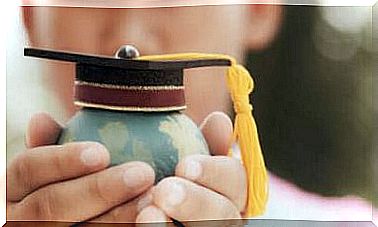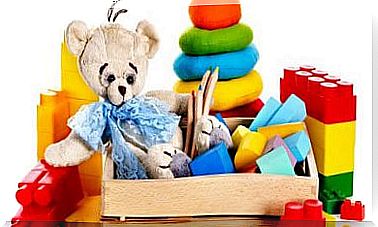Good Behavior Is An Important Quality To Have

Good behavior is something that we mothers want all our children to learn. Having good manners, being polite and standing out from their good manners is something we must strive to achieve. In the following article, we will tell you what you can do, make it a reality. Take note!
Raising children to behave is an incredibly important responsibility that we as parents have. Without a doubt, understanding and using good manners gives children positive characteristics, such as politeness and empathy, towards others.
Good behavior also promotes greater self-esteem in children and also a great understanding of their surroundings. Parents should begin and instill good behavior and manners from a young age, and this should be part of daily learning.
In today’s technological society, instilling good behavior in children is more critical than ever. One of the most important tasks is without a doubt, to teach their children social skills that parents need to address.
Children need to learn to treat others politely and to be respectful and considerate of others.
5 tips for raising good behavior for children
Parents should consider the following suggestions when instilling good behavior in their children:
1. Be a good model for good behavior
The first essential piece of advice for learning good manners for children is that you model the behaviors you want to see. Children tend to follow examples they see in their role models, so set a good example.
At the same time, speak in a friendly tone when addressing your children and others. If you ask your children to do something, do it without making threats.
Practicing patience is not always easy. But as an adult, it is your responsibility to model appropriate behaviors.

2. Sensitivity
Good behavior stems from a sense of respect for others. The road to respect is, in essence, sensitivity. If you can teach your child to be sensitive and considerate towards others, then you are giving a wonderful gift.
The root of good behavior is respect for others, and the root of respect is sensitivity. Sensitivity is one of the most valuable qualities you can instill in your children from a young age. A child who is sensitive will consider the feelings of others and, of course, become a well-meaning person.
3. “Please” and “thank you”
Learning from children to say “please” and “thank you” is the foundation of learning good behavior. These words are, of course, the building blocks of good behavior. As children grow, their parents can encourage them by writing thank you notes – preferably by hand.
It goes without saying that children should learn to say thank you when they receive a gift. But we should also teach them to be polite and say thank you to those who help and serve them.
This includes waiters and waitresses, cashiers, drivers, etc. It also includes saying thank you to family members who do things for them on a routine basis.
4. Wait for it to be your turn to speak
Teach your child a habit of not interrupting, but rather waiting with his or her turn to speak. This is a frequent problem, especially with children. It happens because they want to express themselves as soon as something comes into their mind.
Children are naturally egocentric and need reminders not to interrupt. It is important to teach them to wait to speak until the other person has finished speaking.
To help your children learn this skill, you can use visual reminder. For example, you could use a stuffed animal or a stick to indicate when it’s time for someone to talk.

5. Do not be insistent when raising in manners
Language is an ability that should be enjoyed, not forced. Yes, it is good to occasionally remind your children to say “please” before making a request. You should also avoid being insistent or overbearing.
In fact, you need to be careful. Children can easily get tired of these words before they even learn their meaning. It is better occasionally to stick to gentle reminders, and again, model the behaviors you want to see. This will be much more effective than constant torment.
You must not make the word “please” a condition of giving your child requests. In other words, saying “please” is not the magic word to get what they want, but rather an important part of being polite.
This way, you will effectively work these words into your child’s vocabulary naturally without giving the impression that their use allows your child to get a reward.
Finally, we would like to remind you that you need to be very patient when teaching children to be polite. It is without a doubt something you have to work on every day to achieve results.
Nevertheless, we are sure you will be glad you did!









